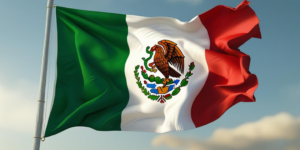President Trump, Racism and the Immigration Debate
For the past week, journalists and politicians have been consumed with one question: Did President Trump use vulgar, racist language to describe Haiti and nations in Africa?
We may never know exactly what words Trump used during that meeting with lawmakers in Washington on Jan. 11. The president allegedly called a group of poor nations “[expletive] countries” during a discussion about DACA, a program that protects the children of illegal immigrants.
When news of Trump’s alleged comment spread, Republican senator Lindsey Graham told reporters he definitely heard Trump say the offending word. Senators Tom Cotton of Arkansas and David Perdue of Georgia denied that Trump said it. Illinois Democrat Dick Durbin insisted otherwise, and called the comment “hate-filled, vile and racist.”
In his defense, Trump tweeted: “The language used by me at the DACA meeting was tough, but this was not the language used.” But an international outcry followed. Ambassadors and presidents denounced the word as insensitive and degrading. Trump took a beating, and our nation became even more polarized.
Many Christians have rushed to President Trump’s defense, saying they are sure he didn’t say the word. Others seem ready to condemn Trump whether he said it or not.
My main concern in this debate is not whether the leader of the free world uttered a word I can’t use in this magazine. I can’t prove whether the president said it. But even if he didn’t, he did acknowledge what he was trying to communicate in the DACA meeting. He was asking the senators: “Why would we allow immigrants to come to our country if they are from troubled, dysfunctional nations? Why should we give citizenship to people who will end up being a drag on our system?”
It’s a fair question. And it raises the most important point in the immigration debate. Should the United States close our doors to certain countries just because they are poor, or because they have social or economic problems?
Many leaders in today’s conservative political movement say yes. They believe we would spare the United States a lot of grief if we allowed more immigrants from, say, Norway (Trump suggested this in the DACA meeting)—since Norwegians supposedly wouldn’t bring any problems with them.
But that position in itself is selfish, cold-hearted and racist, whether any racist slurs or vulgar terms are attached. And it is 100 percent opposite to the values of Christianity—which calls us to love foreigners and to show compassion to the poor.
Many Christians say they support President Trump not because he always exhibits Christian character (he is certainly not a pastor) or because his speech is G-rated (we have examples to prove it isn’t) but because he stands for biblical policies. But in this case, I can’t be a faithful prophetic voice for God if I don’t wave a red flag and question President Trump’s ideals.
Having a closed-door policy toward poor foreigners is blatantly anti-Christian. So is showing favoritism toward the privileged. Let’s remember the principle of compassion that is so clearly outlined in Scripture:
Deuteronomy 10:19 says: “Therefore, love the foreigner, for you were foreigners in the land of Egypt.” We should love others less fortunate than us because we were once in their shoes. Americans, of all people, should understand this—because we are a nation of immigrants. It was only a few generations ago when immigrants from Italy, Ireland and Poland were treated shamefully in this country. Today, the suspicion is aimed at those with darker skin or Muslim backgrounds. We should love them regardless.
Leviticus 19:34a says: “The foreigner who dwells with you shall be to you as one born among you, and you shall love him as yourself for you were aliens in the land of Egypt.” Notice, God did not provide a list of “approved” nations that should be protected by Israel. He simply said “the stranger.” God does not make a differentiation between “good nations” and “[expletive] countries.” He tells us to love them all.
Jesus Himself said in Matthew 25:35: “For I was hungry, and you gave Me food, I was thirsty and you gave Me drink, I was a stranger and you took Me in.” We can defend our protectionist immigration policies in the name of “security,” but Jesus will have the last word when He asks us what we did with the people He wanted to send to us to protect. On the day of Christ’s return, we will not be allowed to make lame excuses, such as, “But Lord, those people are filthy, and we didn’t want them to drag down the economy.”
Our compassionate immigration policy is the reason the United States is a blessed nation. We have been a welcoming people. Our own Statue of Liberty is a sign to the world that we have, at least in the past, invited strangers to find freedom and opportunity within our borders—whether they were fleeing war, disasters, religious repression, violence or hunger.
How dare we tell Jesus that we don’t want “those people” to become our neighbors. This whole world was a filthy, forsaken place when Jesus left heaven to come here and save us. Compassion for the poor is at the heart of the gospel. Please don’t let your politics turn your heart cold.




























































